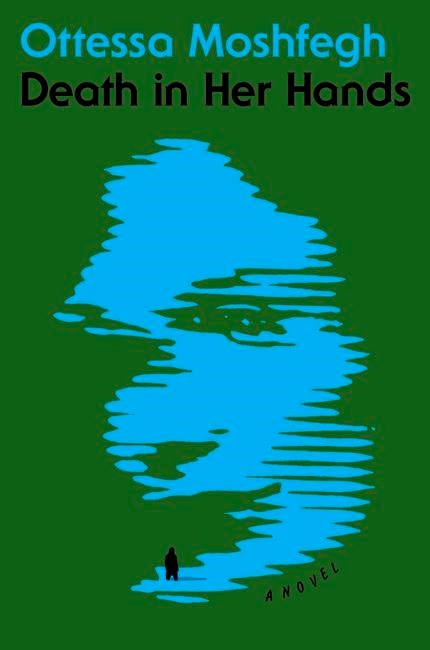“Death in Her Hands,” by Ottessa Moshfegh (Penguin Press)
Dark doesn’t even begin to describe Ottessa Moshfegh’s latest novel, “Death in Her Hands.” Try horrifying, macabre, fashionably self-referential and exceptionally well-written — a book, as the publisher’s blurb says, that asks us to consider how the stories we tell ourselves both reflect the truth and keep us blind to it. Plus, it’s got a great dog.
The novel begins with the narrator, Vesta Gul, finding a note while she is out walking her dog in the woods. It says, “Her name was Magda. Nobody will ever know who killed her. It wasn’t me. Here is her dead body.” But there is no body. Even so, she will spend the rest of the book trying to solve the mystery of its disappearance.
To do so, she must first imagine the corpse. Then, figure out how it got there. Soon, she’s imagining an entire cast of characters including Magda, her killer and the author of the note, unless the latter two were the same — which she quickly concludes they were not.
Of course, murder isn’t the point here. Moshfegh, the acclaimed author of “My Year of Rest and Relaxation,” has created in Vesta another psychologically fragile narrator in the process of coming undone. Vesta likes to think of herself as “just a little old lady, peacefully waiting out the rest of my life” — readers soon realize she’s anything but.
As Vesta forces herself to imagine what might have happened, the writing has a tendency to become forced as well — perfunctory, writing for the sake of writing. Yet other passages are lovely, filled with lyrical descriptions of the natural world and dead-on observations of rural, small-town life, including the ubiquitous radio preachers and single-pump gas stations selling coffee, bait and ice.
For better or worse, we spend a lot of time inside Vesta’s head as she ruminates about her own unhappy life, from her strict upbringing to her boring clerical job and calamitous marriage to a distant, controlling spouse.
Vesta is a misanthrope and a snob, with a special disdain for fat people, particularly the other women in the local grocery store: “big as cows, whose thick ankles seemed about to snap as they tottered up and down the aisles with their huge shopping carts filled with junk food.”
If you’re a fan of gothic fiction, “Death in Her Hands” might just be your cup of tea. If not, come for the dread — and stay for the dog.
Ann Levin, The Associated Press



